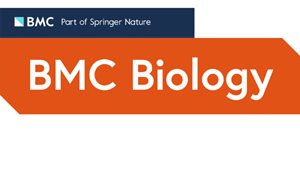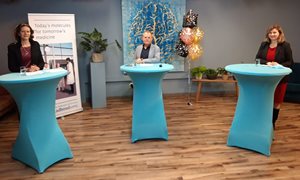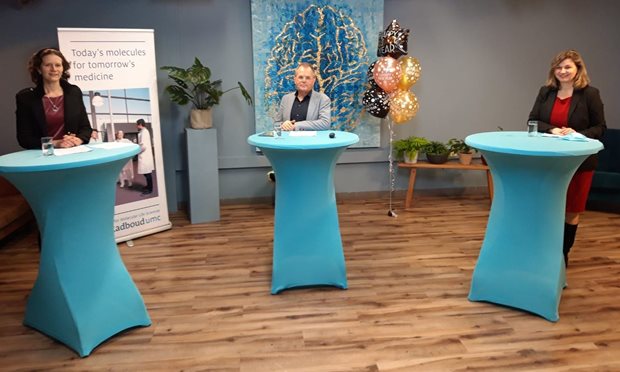 My name is Willem Melchers, Dutch, Associate professor Molecular Microbiology (ius promovendi); head Laboratory of Clinical Microbiology, Department of Medical Microbiology, theme Women’s cancers.
My name is Willem Melchers, Dutch, Associate professor Molecular Microbiology (ius promovendi); head Laboratory of Clinical Microbiology, Department of Medical Microbiology, theme Women’s cancers.
When you were a kid what did you want to be when you grew up? Can you tell us something about your child years.
After reading a book at very young age, I was impressed by the sentence: “De geleerden vonden…..””. I do not think there is a good translation for the “geleerden” but that was my new direction.
I had a great youth here in Nijmegen. At that time at an old-fashioned boy-school with lots of friends strolling through the Nijmegen wilderness. Always outside (no computers, no TV, no phones), time was on our side.
What was your previous academic training, where did you study and why that study?
I studied Biology in Nijmegen with the primary intention to study the behavior of the wolves in Canada, so look at me now……I moved to more clinical research with my PhD on HPV and cervical cancer at the Free University (VU) in Amsterdam being the first PhD on this subject in The Netherlands that finally resulted in the total change of the population-based screening for cervical cancer in The Netherlands in 2017 to molecular screening for HPV (first country in the world) with the Radboudumc as one of the selected screenings centers (to be honest not entirely based on my PhD….). I moved to the Radboud UMC (at that time the “KUN”) in 1989 to further work in medical microbiology.The RIMLS motto is “Today’s molecules for tomorrow’s medicine”. What does this mean for you?
Close to everything, the driving force so to say. I strongly believe in personalized medicine and a lot of my work is related to bring this to reality.Who is your great example as scientists? And please give a motivation why.
This question is way too complicated and impossible to answer as inspiration comes from many people and many directions. I consider young ambitious, eager and challenging PhD-students as great examples.Which research discovery that you have made has made you most proud?
Together with Paul Verweij, we discovered a totally new resistance mechanism in the fungus Aspergillus fumigatus which gave resistance to all available and generally used azoles antifungels and results in close to untreatable patients with a mortality rate as high as 90%. This resistance is environmentally driven and spread and the fungus infects azole-naïve patients. New resistance mechanism continue to evolve and emerge and now has become a global threat for the management of patients with invasive aspergilosis. Our first papers (although finally (!) published in the New England Journal of Medicine, PLoS Medicine and Lancet Infectious Diseases) were met with great scepticism and even anger, but now the concept is globally accepted and even addressed in Government.The beauty of the research was also that it really fulfils everything in the Radboud umc philosophy “from molecule to man to population”.
Given unlimited finance what experiment would you perform?
As indicated before I strongly believe in personalized health care. Part of this concept is integrated diagnostics releasing the boarders of the different Departments by combining all forms of diagnostics for the benefit of the individual patient. The enormous amount of generated data (which will become more and more) requires studies in bioinformatics, new algorithms and beyond that in which also new insights and mind shifts (think of ReShape) should play a significant role.What does your working area (desk, office) look like and what does it say about you (or your research)?
Let’s say a very organized chaos.Nominate a colleague to be in the spotlight and what would you like to ask him or her?
I would like to nominate Jack Schalken. Jack Schalken is, what I think, the example of bringing research to the patient. He is able to combine basic research and unmet clinical needs. Apart from that he knows how to bring his discoveries to the market creating great opportunities for patient care. Question: Jack how do you see the future of the University?What type of person are you, quick insights:
a) Mac or PC? : I use bothb) Theater or cinema? : Cinema
c) Dine out or dine in? : Love to cook (even have my own “men’s-cooking club) and love to dine
d) Ferrari or Fiat? : Clearly Ferrari (had the change to drive it once) but drive Volvo
e) Shopaholic or chocoholic? : Chocolate is one of the secret temptations I am afraid
f) Culture or Nature : Nature
Related news items

Novel high-resolution targeted sequencing of the cervicovaginal microbiome published in the Journal of BMC Biology
28 December 2021 This project of William Melchers, Karolina Andralojc and Mariano Molina describe a novel sequencing method to profile the cervicovaginal microbiome at the species level and with the potential to elucidate the role of the microbiome in hrHPV-induced carcinogenesis. read more
RIMLS awards call for nominations
19 October 2021 RIMLS awards several prizes to stimulate and honor our (young) researchers. Upcoming awards are Supervisor of the Year, Best Master Thesis, Best Publication, Best Image and more. Send your nominations now before 24 November 2021. read more

RIMLS online award ceremony proudly presenting the winners
13 January 2021In this special webinar of the RIMLS New Year Celebration, scientific director René Bindels reviewed 2020 and looked forward to 2021. But more importantly a number of researchers received prizes in the traditional RIMLS awards ceremony.
read more
RIMLS PhD retreat registration is open
23 January 2020 Yearly, RIMLS PhD candidates gather for the two-day PhD Retreat. Apart from the science, this event is highly valued for the opportunity to meet and get to know fellow PhD candidates during the social activities. Early bird registration and abstract submission deadline: 4 March 2020. read more
RIMLS awards call for nominations
26 November 2019 RIMLS awards several prizes to stimulate and honor our (young) researchers. Please find here an overview of the upcoming awards. Deadline 12 December 2019. read more
